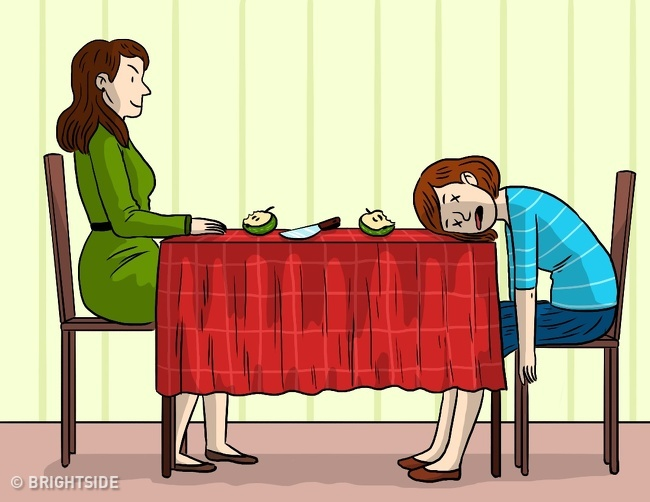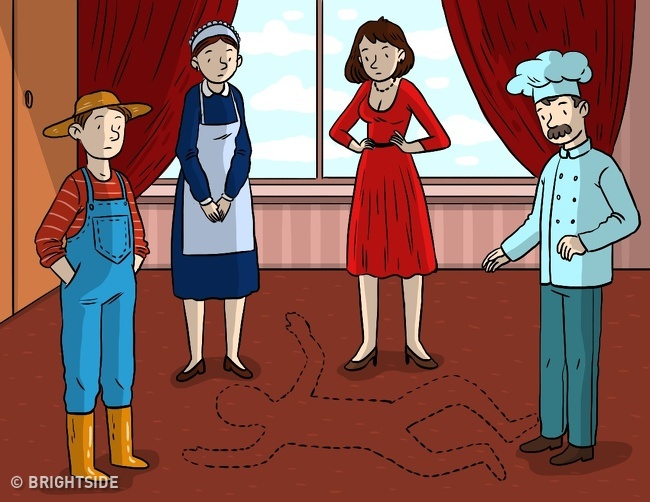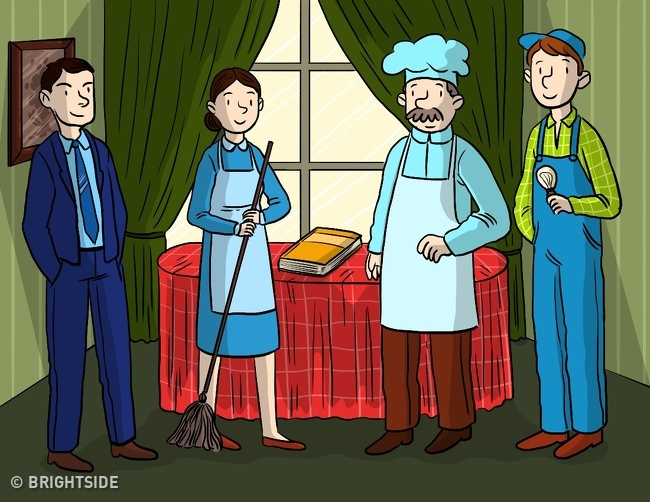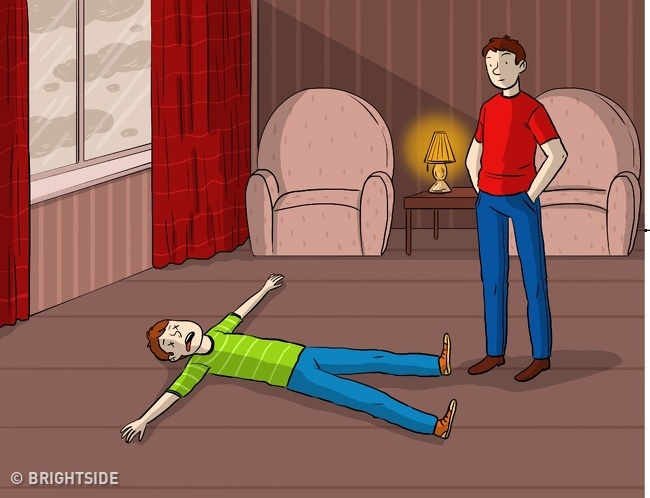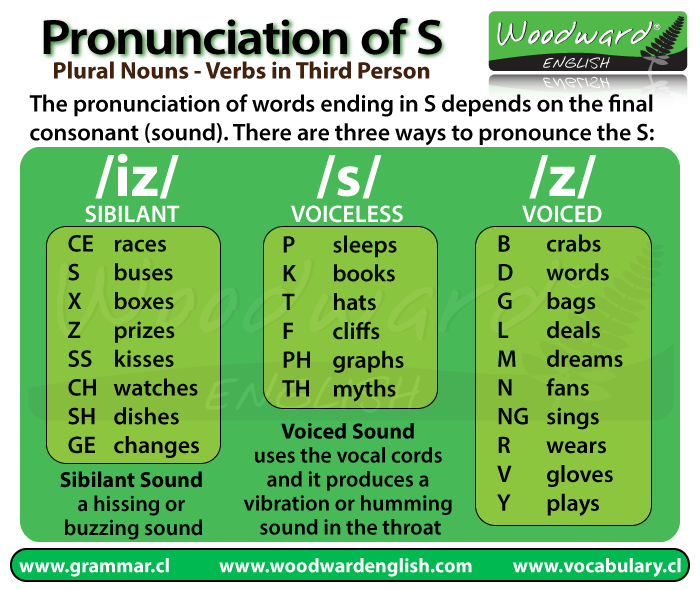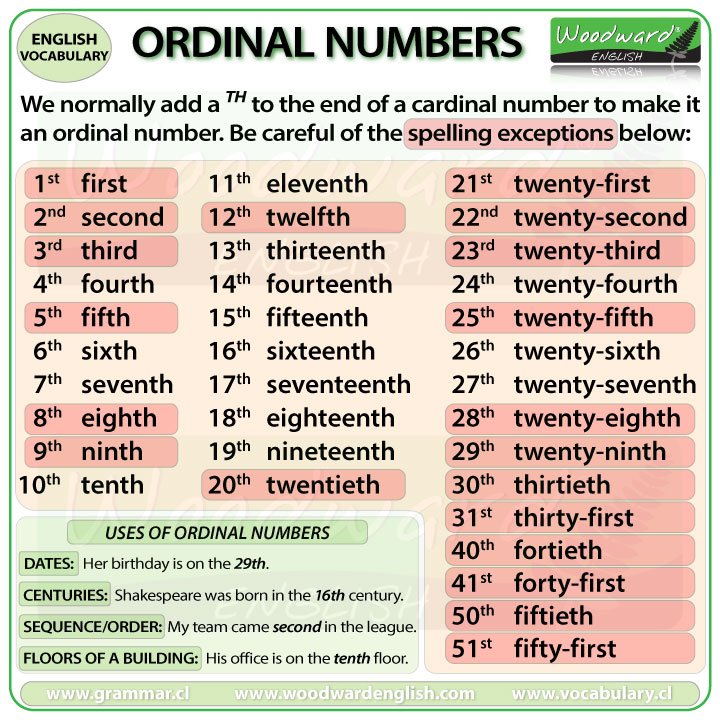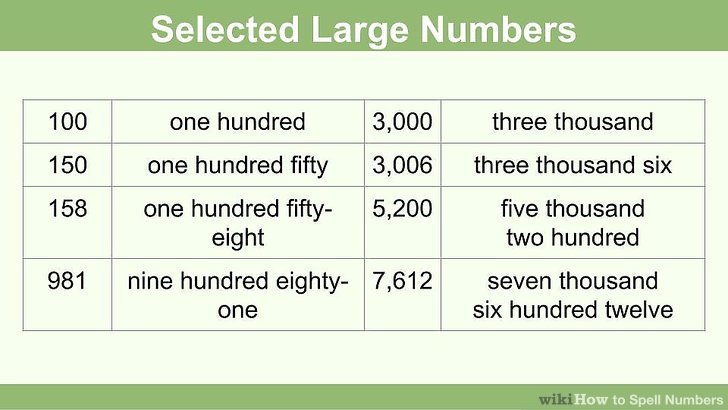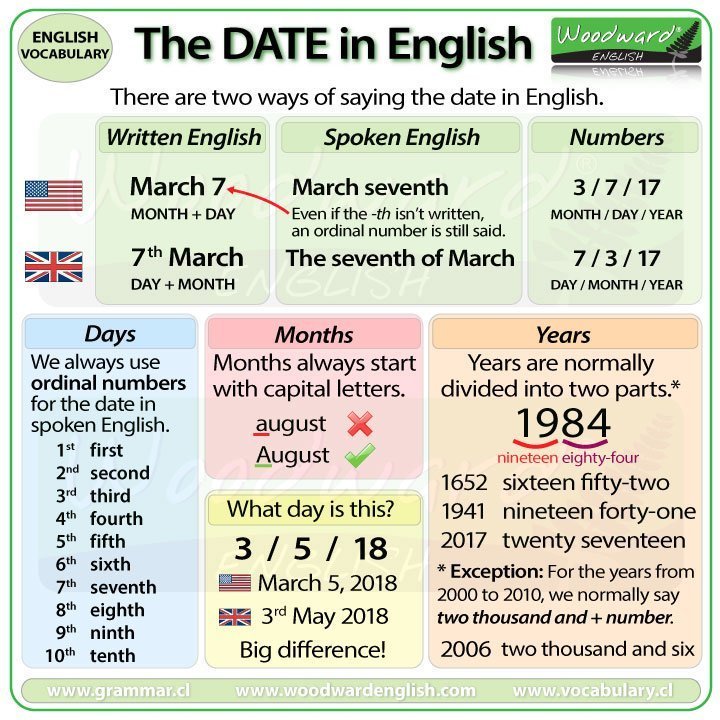CREATE YOUR OWN CLASS RULES
Welcome to my blog
LEARN THROUGH EXPERIENCE
Follow Me!
kids
Riddle № 1. Jailbreak
Jack is placed in a cell with a dirt floor and only one window positioned so high no one could reach it. The cell is empty except for a shovel. It’s dry and hot in there, but Jack won’t get any food or drink anytime soon. He has only 2 days to break out of the jail. If not — he’ll die.
Digging a tunnel is not an option because it’ll take more than 2 days. How should Jack escape the cell?
Riddle № 2. A stolen necklace
Mrs. Smith went to the police claiming that her vintage necklace was missing. When the police arrived, they saw no signs of a break-in. Only one window was broken. There was a total mess inside the house and dirty footprints all over the floor.
The next day, Mrs. Smith was arrested for fraud. Why?
Riddle № 3. Murder at school
On the first day of the school year, a geography teacher was murdered. The police had 4 suspects: the gardener, the math teacher, the coach, and the school principal. They all had alibis:
- The gardener was cutting bushes.
- The math teacher was holding a mid-year test.
- The coach was playing basketball.
- The principal was in his office.
The killer was arrested immediately. Who killed the geography teacher, and how did the police solve the mystery?
Riddle № 4. A lonely man
A lonely old man lived in his house in the suburb of a city. He never left the house for long. It was a midsummer Friday when the mailman walked by and called out for the man. There was no answer. The mailman looked into the window and saw him in a pool of blood. When the policeman arrived, he found Tuesday’s newspaper, 2 bottles of warm milk, and 1 bottle of cold milk.
The next day, the killer was arrested. How did the police find out who it was so quickly?
Riddle № 5. 2 pills
A serial killer kidnapped people and made them take 1 of 2 pills: one was harmless, and the other was poisonous. Whichever pill a victim took, the serial killer took the other one. The victim took their pill with water and died. The killer survived.
How did the killer always get the harmless pill?
Riddle № 6. Frozen windows
Once on a winter day, John found his friend dead in his own house. John called the police and said that he was just passing by Jack’s house and decided to come in.
He’d been knocking and ringing the bell for a long time, but all was silent. However, he could see the light in the room through a frozen window. He breathed on the iced window glass and saw Jack on the floor.
The police arrested John as the main suspect. Why?
Riddle № 7. Chemical substances
A famous chemist was murdered in his own lab. There was no evidence except for a piece of paper with the names of chemical substances on it. On the day he was murdered, the chemist had only 3 visitors: his wife, Mary, his nephew Nicolas, and his friend Johnathan.
The police arrested the murderer right away. How did they know who it was?
Answers
Riddle № 1
Jack should use the shovel to make a pile of dirt under the window, climb on it, and escape from his cell.
Riddle № 2
The police were sure that Mrs. Smith lied to them because the window was broken from the inside. If it was broken from the outside, little pieces of glass would be on the room’s floor.
Riddle № 3
The killer was the math teacher. According to his words, he was holding a mid-year test, but the crime happened on the first day of the school year.
Riddle № 4
It was obviously the mailman. He knew that no one in this house would read a newspaper on Wednesday or Thursday.
Riddle № 5
Both of the pills were harmless. The poison was in the glass of water the victim drank.
Riddle № 6
John wouldn’t be able to unfreeze the window glass because it’s usually icy on the inside.
Riddle № 7
The piece of paper had a clue on it. If you combine the short names of the chemical substances on the paper, you’ll get a name: Ni-C-O-La-S.
COLOUR FLASHCARD GAME
-Line the cards on the floor.
-Divide the class into two groups.
-Each group stands at one end of the line facing each other.
-First student from each group start at the same time naming the colour they step next to.
-The game goes on till every student takes his/her turn.
Touch. Have Ss run around the classroom touching things in the color that the T shouts out (e.g. "Touch something green").
GAME-Memory
https://www.eslgamesplus.com/colors-vocabulary-esl-memory-game/
http://www.eslgamesworld.com/members/games/vocabulary/memoryaudio/colours/index.html
1.
Put all the chairs in a circle and give each student a colour. (each colour should have about 4-5 students)
When you call out the colour, all the students who have that colour need to change seats with each other.
After they have the idea, when you call out a colour, you can take one of the seats so there is a student in the middle of the group.
If you want all the students to change seats call out "rainbow"
2.
Put all the chairs in a circle, and draw attention to the students clothes.
What colours are they wearing?
Ask the students who are wearing a certain colour to change seats with another student.
(You can make it more difficult by saying red shoes, white t-shirt etc, depending on the students level.)
Again, you need to take one of the seats so that a student ends up in the middle and has to call out the colour.
GAME
http://www.abcya.com/number_bingo.htm
Game(9+)
https://www.eslgamesplus.com/numbers-10-to-100-esl-vocabulary-interactive-board-game/
Number Group Game. Play some music and have your Ss walk around the classroom. Stop the music suddenly and call out a number (up to the number of Ss in your class). The Ss must quickly get together in a group of that number. Any Ss who didn't make it sit out until the next round.
- Line it Up - See how fast your group can get into an alphabetical line based on their names. Better yet, split into boys vs. girls or two randomly assigned groups and race to see which group can get organized first.
https://quizlet.com/259679476/alphabet-flash-cards/
https://quizlet.com/152833896/alphabet-flash-cards/
GAME- Ordering the letters
http://www.abcya.com/alphabet.htm
GAME-Popping the Balloon
https://www.education.com/game/lowercase-letter-whack-attack/
GAME- Memory
http://www.abcya.com/alphabet_matching_game.htm
GAME- Bubble Letters
http://www.abcya.com/alphabet_bubble_letter_match.htm
* 2 TRUTHS and A LIE
* FIND SOMEONE WHO
* WHO DONE IT (WHODUNIT)
1. Hey, Hey man, Hello or Hi
2. How’s it going? or How are you doing?
3. What’s up?, What’s new?, or What’s going on?
4. How’s everything ?, How are things?, or How’s life?
5. How’s your day? or How’s your day going?
6. Good to see you or Nice to see you
7. Long time no see or It’s been a while -“how have you been?” or “what’s new?
Business Greetings and Formal Greetings
8. Good morning, Good afternoon, or Good evening
9. It’s nice to meet you or Pleased to meet you
10. How have you been?
11. How do you do?
Slang English Greetings
12. Yo!
13. Are you OK?, You alright?, or Alright mate?
14. Howdy!
This is a very informal abbreviation of “how do you do?”
15. Sup? or Whazzup?
General English
GREETINGS
1) "Hey there, Hey, Hey man, Hello or Hi'' : This is casual, friendly, and familiar. It could be used between good friends or romantic partners in spoken English, text messages, voice mail messages or emails.
2) "Hey! There she/he is" : This is usually used in situations when you know the person well and it implies that you have been expecting to see the person or that you are very happy to see the person. Emphasis with pronunciation is placed on "there."
3) "Hey! What's up?" : This is casual and could be used between friends, colleagues, siblings, etc.
4) "What's going on? What’s new? How’s it going? How are you doing? How's life? " : These are casual and could be used between friends or acquaintances in an informal situation like a party.
5) "How's everything?" : This is simply another way of saying "how are you." It is usually used casually.
6) "How are things?" : This is very similar to "how is everything?" and is perhaps more casual than "how is everything?"
7) "How's it going?" : This is casual, especially when you shorten it as in "How's it goin'?
8) "How are you doing today?" : This is formal and might be used between a professional and a client or customer or between colleagues or a boss and his or her workers.
9) "Good to see you," "great to see you," "nice to see you" : These could all be used informally or casually between business colleagues, friends, or family members. These phrases are often used when you haven't seen the person in a while.
10) ''Long time no see! It’s been ages! (since I’ve seen you.) / Where have you been?'': you may use one of these expressions when you have not seen a friend or family member for a very long time.
Slang English Greetings
1. Yo!
2. Are you OK?, You alright?, or Alright mate?
3. Howdy!
This is a very informal abbreviation of “how do you do?”
4. Sup? or Whazzup?
Example:
Andrew: Hey man, how’s it goin’?
Joel: Hey, it’s goin’ good man, how are you doin”?
Andrew: I’m doin’ fine. What’s new?
Example:
Andrew: Hey man, what’s up?
Joel: Hey, not much. What’s new with you?
Andrew: Oh you know, same old, same old.
GOOD BYE
1) "See you later" or "see ya later" : This becomes more casual when you use "ya" instead of "you."
2) "See you soon" or "see ya soon" : This is similar to the example above. It can be used to indicate that you want to or plan to meet with the person again soon.
3) "Take care" : This could be formal or casual, but is usually used with people you know or care about. You might use this in an email or written letter.
4) "Gotta go!" This is used in casual situations when you want to escape the conversation quickly and you don't want to go through a longer or more sentimental goodbye.
5) "Talk to you soon" : This is used more often in writing emails or on the phone than in daily spoken interactions. It is usually casual.
6) "See you next time" : This is used when you know you will be returning to a specific place and you will see the person when you come back.
7)"Catch ya later" : This is used very casually between friends or acquaintances.
8) "Have a good one" : This means, "have a nice day" and is used casually, but it could be used between strangers, friends, colleages, or family members.
Greeting | Usage (Oral / Written) | Language Register |
Yours Sincerely / Yours Faithfully | Written only | Very formal |
Kind Regards | Written only | Formal |
Farewell | Written and oral | Formal |
All the best | Written and oral | Neutral - Formal |
Goodbye! | Oral | Neutral - Formal |
See you later / tomorrow / in the morning | Mostly oral | Neutral |
Take care | Written and oral | Neutral |
From (+ name) | Written only | Neutral |
Bye! | Oral | Neutral - Informal |
See ya! | Oral | Informal |
Love / Love from | Written only | Informal (used with close friends and family) |
Lots of love / Much love | Mostly written | Informal |
See you around | Oral | Informal |
Catch you later | Oral | Informal |
https://brightside.me/wonder-quizzes/can-you-find-whats-wrong-with-these-10-pictures-498860/
Riddle № 1. Jailbreak
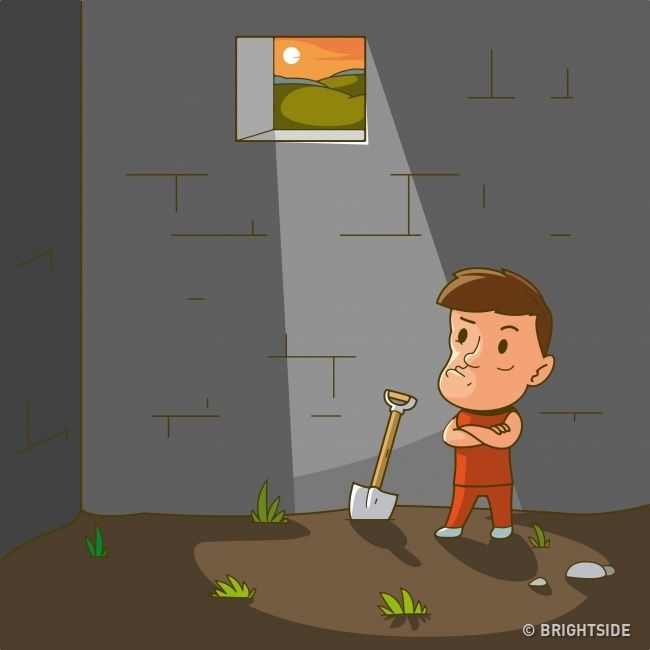
Jack is placed in a cell with a dirt floor and only one window positioned so high no one could reach it. The cell is empty except for a shovel. It’s dry and hot in there, but Jack won’t get any food or drink anytime soon. He has only 2 days to break out of the jail. If not — he’ll die.
Digging a tunnel is not an option because it’ll take more than 2 days. How should Jack escape the cell?
Riddle № 2. A stolen necklace
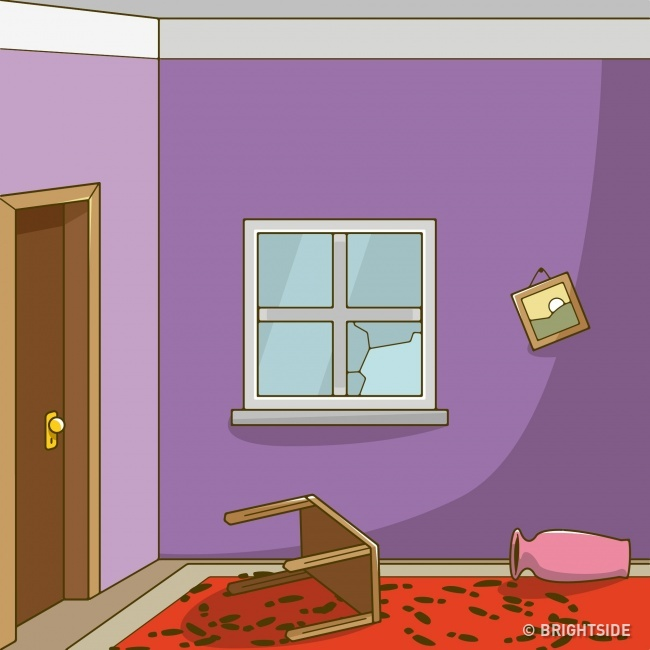
Mrs. Smith went to the police claiming that her vintage necklace was missing. When the police arrived, they saw no signs of a break-in. Only one window was broken. There was a total mess inside the house and dirty footprints all over the floor.
The next day, Mrs. Smith was arrested for fraud. Why?
Riddle № 3. Murder at school
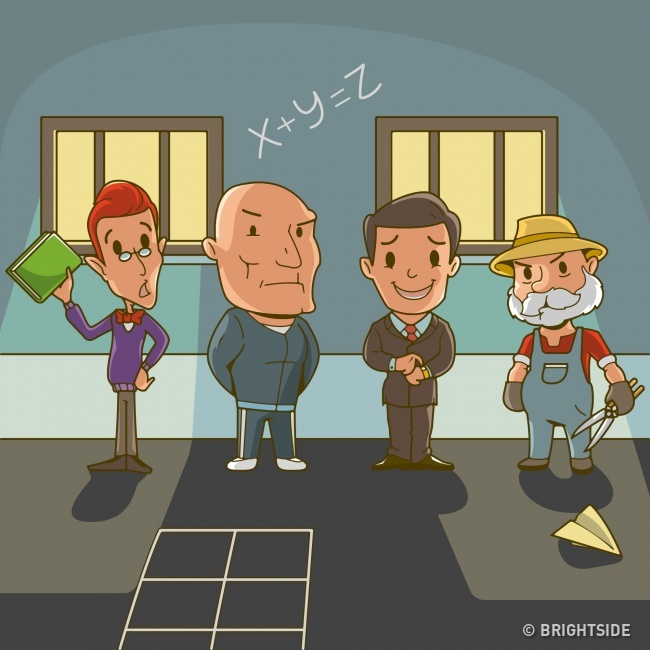
On the first day of the school year, a geography teacher was murdered. The police had 4 suspects: the gardener, the math teacher, the coach, and the school principal. They all had alibis:
- The gardener was cutting bushes.
- The math teacher was holding a mid-year test.
- The coach was playing basketball.
- The principal was in his office.
The killer was arrested immediately. Who killed the geography teacher, and how did the police solve the mystery?
Riddle № 4. A lonely man

A lonely old man lived in his house in the suburb of a city. He never left the house for long. It was a midsummer Friday when the mailman walked by and called out for the man. There was no answer. The mailman looked into the window and saw him in a pool of blood. When the policeman arrived, he found Tuesday’s newspaper, 2 bottles of warm milk, and 1 bottle of cold milk.
The next day, the killer was arrested. How did the police find out who it was so quickly?
Riddle № 5. 2 pills
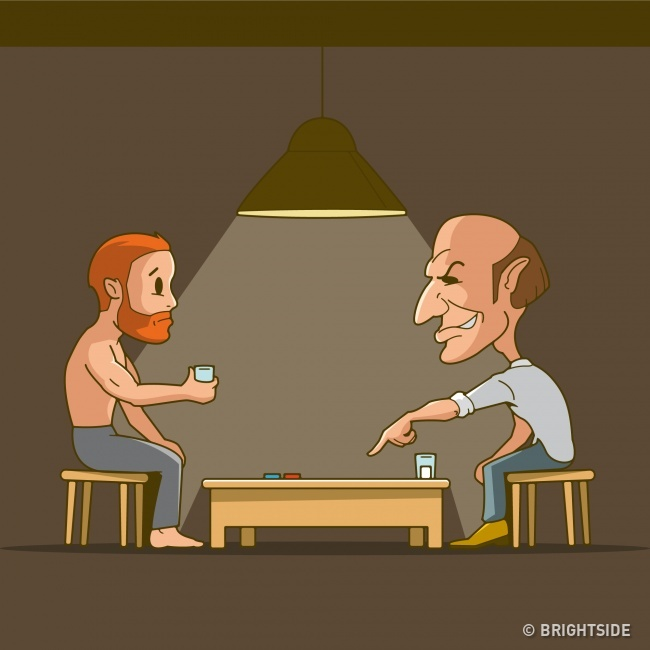
A serial killer kidnapped people and made them take 1 of 2 pills: one was harmless, and the other was poisonous. Whichever pill a victim took, the serial killer took the other one. The victim took their pill with water and died. The killer survived.
How did the killer always get the harmless pill?
Riddle № 6. Frozen windows
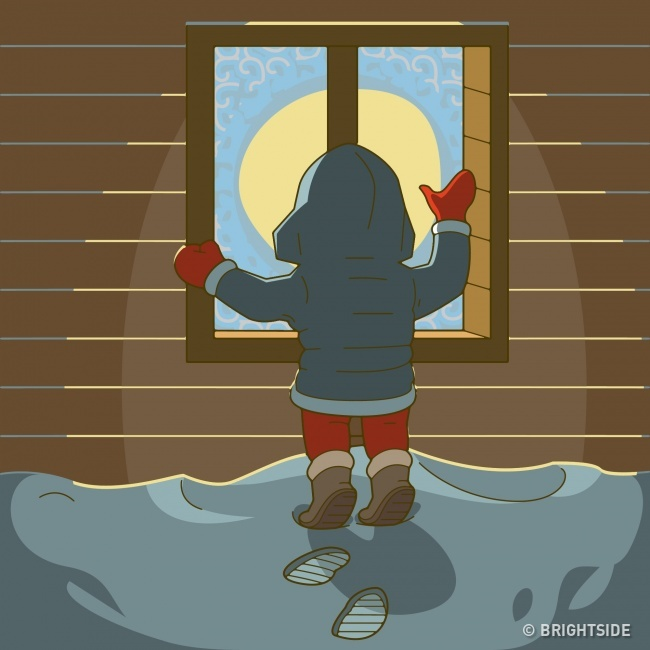
Once on a winter day, John found his friend dead in his own house. John called the police and said that he was just passing by Jack’s house and decided to come in.
He’d been knocking and ringing the bell for a long time, but all was silent. However, he could see the light in the room through a frozen window. He breathed on the iced window glass and saw Jack on the floor.
The police arrested John as the main suspect. Why?
Riddle № 7. Chemical substances
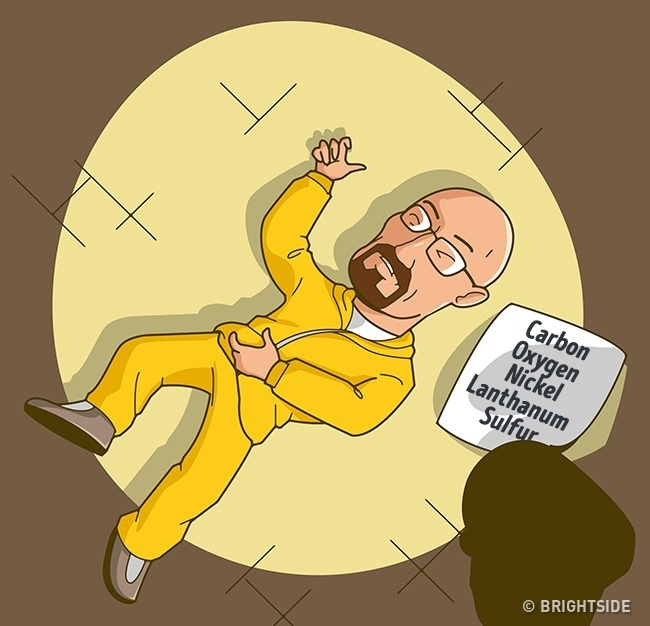
A famous chemist was murdered in his own lab. There was no evidence except for a piece of paper with the names of chemical substances on it. On the day he was murdered, the chemist had only 3 visitors: his wife, Mary, his nephew Nicolas, and his friend Johnathan.
The police arrested the murderer right away. How did they know who it was?
Answers
Riddle № 1
Jack should use the shovel to make a pile of dirt under the window, climb on it, and escape from his cell.
Riddle № 2
The police were sure that Mrs. Smith lied to them because the window was broken from the inside. If it was broken from the outside, little pieces of glass would be on the room’s floor.
Riddle № 3
The killer was the math teacher. According to his words, he was holding a mid-year test, but the crime happened on the first day of the school year.
Riddle № 4
It was obviously the mailman. He knew that no one in this house would read a newspaper on Wednesday or Thursday.
Riddle № 5
Both of the pills were harmless. The poison was in the glass of water the victim drank.
Riddle № 6
John wouldn’t be able to unfreeze the window glass because it’s usually icy on the inside.
Riddle № 7
The piece of paper had a clue on it. If you combine the short names of the chemical substances on the paper, you’ll get a name: Ni-C-O-La-S.
1. A serial killer
A serial killer invited a prospective victim to her home. They had dinner together after which, she offered her victim an apple. The victim said that she was already full. The killer divided the apple in half so they could share it. They both started eating the apple and as soon as the guest tried the apple she died.
Question:
If both of them had the same apple, why did one of them die and another survive?
Answer:
The killer used a knife coated with poison just on one edge.
2. Murder at home
A man was found murdered on a Sunday afternoon. At the time of the murder there were four people in the house. The wife, the cook, the maid, and the gardener. The police were called to investigate the murder. Everybody told the police what they were doing.
The wife said “I was reading a book”
The cook said “I was cooking breakfast”
The maid said “I was fixing the table”
The gardener said “I was watering the plants”
After listening the statements, the police arrested the murderer.
Question:
Who is the murderer and how did the police know?
Answer:
The cook did it.
You don’t cook breakfast in the afternoon.
3. Stolen money
A man placed a $100 bill on the table and left for work. When he returned, the money was gone. He has three suspects: the cook, the maid, and the electrician.
The cook said “I put the bill under a book to keep it safe,” the man checked and it was not there.
The maid said “I moved the bill inside the book between page 10 and 11 to keep it safe,” the man checked the book and there was nothing between pages 10 and 11.
The electrician said “I saw the bill sticking out of the book and I moved it between pages 11 and 12 to keep it safe.”
The man immediately knew who stole the money.
Question:
Who is the thief?
Answer:
The elecrician stole the money.
If the man checked for the money between pages 10 and 11 of the book, then pages 11 and 12 will be opposite sides of a single sheet and the electician simply was not able to do what he said.
5. FROST ON WINDOWS
Ben was found dead in his study by his friend John. John called the police and told them what happened. He said “I was walking by Ben’s house and saw light on in his room. I decided to look from outside to see if he was there. There was frost on the window, so I wiped it and that’s when I saw the body. I kicked the front door in to check things out and found that my friend was dead. I called police immediately.”
The officer knew immediately that John was lying.
Question:
How did the detective know?
Answer:
Frost forms on the inside of the window, not the outside. So John could not have wiped it off to find his friend.
How did it go? Tell us in the comments about your results. Share this little test with your friends and check Bright Side regularly for the next 5 cases of the FBI special agent test.
https://brightside.me/wonder-quizzes/can-you-find-whats-wrong-with-these-10-pictures-498860/
The words and expressions
|
Debate – when people have different opinions concerning certain subjects and discuss their options.
De (the) bait – odds and ends of food that you put on a fishing line to catch a fish (often worms, leftovers of bread)
To dispute – to discuss
To have an argument / to have a fight – when people do not agree with each other on some point. Sometimes they start insulting each other or even hitting and punching.
To chair – to be in a role of a judge
To cheer (to cheer up) – to make someone happy, to support somebody
To sit on the fence (idiom) - if somebody sits on the fence
For example:
I'm sitting on the fence.
I don't know who is right or w
I prefer to sit on the fence.
I hate taking sides in any arg
He's so indecisive.
He always prefers to sit on th
To do a commercial – to promote some products via TV, Internet, Social Media, etc.
To drop something – when you hold an object and the you let it out, the object drops on the floor
To carry on – to keep going, to continue
TV license – a confirmation allowing you to watch TV programms
Jolly good – cool, awesome
Violence – when one person does something bad against the other person’s will
To drown somebody – to kill a person by holding him/her under the water for a long time
To chop off – to cut off
To spare a moment – to have a minute
Out here – come here
To throw something open – to open a debate, a meeting, etc.
To take a vote / to vote – to collect point for opposite proposals
To dismiss – to let go people from the class, lecture, etc.
To call it a draw – to compromise, to admit that nobody’s won.
The debate
|
Split the class into at least two groups and pick up a person who will be a chairman. One group is going to be The Opposers (bad), the other one – The Proposers (good).
Then, announce a topic of the debate. Frankly speaking, you can give any topic you like but if you’d prefer to use mine, feel free to do that.
The topic is:
“Nowadays, a lot of researches say that children are not obliged to go to school. They suppose that schools kill creativity, will and the desire of studying. So they think it is better for children to self-study, to learn at home with private tutors”.
The first group (the Opposers) gives supportive points to the thought that self-studying is bad and children must go to school. The Proposers, on the contrary, agree with the topic and give supportive details to that.
Part 1 - Script
1.Michael: Alright. Okay, great. I just gotta go pick up
my books. I'll be right back. Don't go anywhere.
2.Joey: No problem. I'll be right here.
3.Mrs. Lafferty: Nice to see you again, Maria.
4.Maria: Hello, Mrs. Lafferty.
5.Mrs Lafferty: Welcome. What is your name?
6.Joey: Uh, I'm Joey.
7.Mrs. Lafferty: Joey, you have a wonderful accent.
8.Joey: Thank you.
9.Mrs Lafferty: Joey, this is an 'English As a Second
Language' class for beginners. Are you sure you're in
the right place?
10.Joey: Oh, I'm in the right place.
11.Mrs Lafferty: Let's get started. I hope everyone
practiced counting to ten over the weekend.
12.Mrs Lafferty: Great. Let's do it together.
13.All: One... two... three... four... five... six... seven...
eight... nine... ten.
14.Boris: Eleven, twelve!
15.Mrs Lafferty: Very good, Boris! Somebody's gonna
get a gold star.
16.Boris: Thank you, thank you.
17.Joey: Thirteen, fourteen, fifteen!
………………………………………………………………
18.Joey: "School!" Renata! “They go to school!”
19.Mrs Lafferty: Okay, Joey, why don't you pick it up
where Renata left off? Now this is a hard part, so take
your time.
20.Joey: Oh, boy, yeah, this looks tough. "The bell rang.
The students all went to the auditorium with their
teacher." Boom! That's right, Boris. You heard itAuditorium!
Pff.
21.Maria: I am so lucky to be with the smartest boy in
class. Some words are so.. tug. (Trying to say "tough")
22.Joey: Tug? Oh, remember, I told you sometimes a
"gh' sounds like an "f." Tough. Like, rough, or laugh.
23.Maria: Oh, Joey, make love to me toni-F-t. (Tonight.)
24.Joey: That is good English.
25.Mrs Lafferty: OK, I'd like everybody to take out their
homework on the subjunctive tense.
26.Maria: Joey, you didn't do it?
27.Joey: I got it.
28.Mrs Lafferty: If the present form of the verb "to be"
is "I am," the subjunctive tense is "If I..." Joey.
29.Joey: “If I was.”
30.Mrs Lafferty: Oh, I'm sorry, that's not correct.
31.Boris: It's, uh, “If I were.”
32.Mrs Lafferty: Very good, Boris.
33.Renata: Joey are stupid.
34.Joey: Joey is stupid, Renata!
Comprehensive Questions
1.Why did Joey follow the girl?(Line1-3)
2.Why did Mrs. Lafferty compliment Joey?(Line5-8)
3.What kind of class was it about?(Line9-10)
4.What did students learn last week?(Line11-13)
5.What did Joey do when Maria said ‘tug’ instead of
‘tough’?(Line21-23)
6. Was Joey’s answer correct?(Line25-29)
7.Why did Joey correct Renata’s words?(Line33-34)


